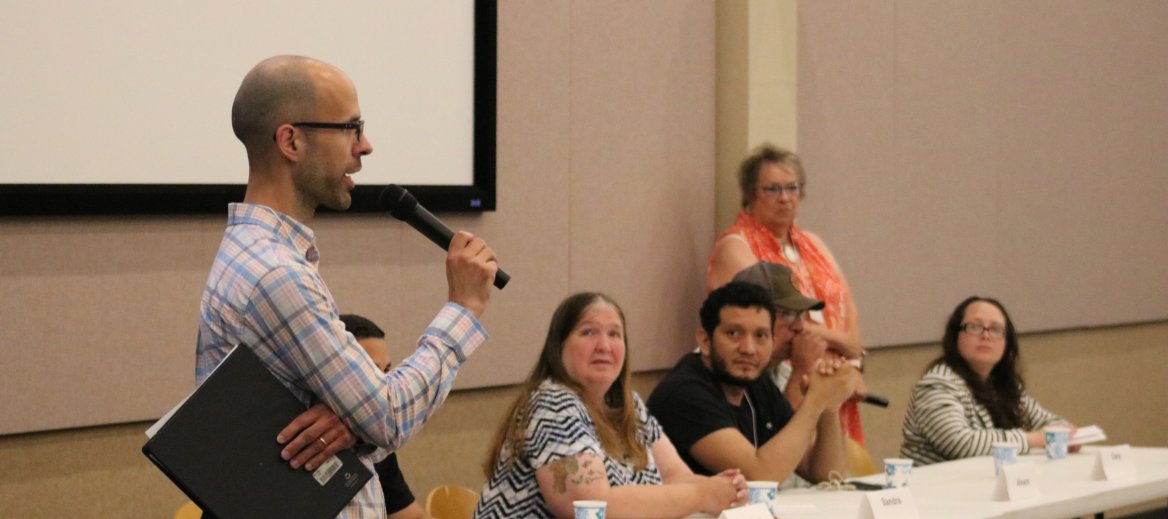At the Coulee Region Immigration Summit, a room packed with people learned to rewrite the story about migrancy. People in migration are not merely “others” — foreigners on the run, escaping unimaginable humanitarian crisis, with no similarities to those in the audience — but people on the move who have traditions and families and histories — just like event attendees. People in migration are people with dignity.
The summit, held at the La Crosse Public Library, July 15 in La Crosse, Wisconsin, featured Franciscan Sister of Perpetual Adoration Eileen McKenzie of Kino Border Initiative, an organization missioned to “work with one foot on each side of the Mexico border in Nogales, Arizona, and Nogales, Sonora, Mexico,” striving to “respond to the most critical needs by respecting the God-given dignity of the human person and by fostering bi-national solidarity through humanitarian assistance, education and research/advocacy.”
Sister Eileen shared that “We need to be conscious of how we speak,” about migration. The stories we typically hear and see are dehumanizing, and repeating them only reinforces negative perceptions. Instead society should be listening to their personal stories about life, lifting up the resiliency and faith of people experiencing forced migration with their children, their parents, their family members.
And as stories about people in migration are told, “images matter. We need to focus on faith and happiness. About what’s working with migration,” said Sister Eileen. “Jesus was a migrant. As faith communities, we talk about solidarity. We have to bring back the values we share.”
Sponsored by the Coulee Region Immigration Task Force, the Franciscan Sisters of Perpetual Adoration Affiliation Office, the Franciscan Spirituality Center and Kino Border Initiative, the summit featured a panel of people who shared personal stories of the journey to the United States; of new opportunities and personal goals; of fellowship and hospitality; of business ownership and employment.
Attendees met Jenny, a DACA recipient working to achieve translation certification and raising her family in fear of deportation. Sandy, a Wisconsin resident sponsoring people — guests in her home while they await asylum — was also a panelist. Alvaro, a man who was sponsored and hosted by Sandy, sat with them and shared both his experience of life on the move, of gratitude for new job opportunities.
Joining these panelists was Gary, a Wisconsin dairy farmer. Gary relies heavily on his employees, many who have experienced migration, who pay taxes and who work to milk 700 cows, three times a day. And attendees also heard from a representative of Voces De La Frontera, an organization with the vision to “create a world where everyone lives free from poverty and discrimination, has access to decent and secure work, quality education, and health insurance; where immigrants can cross borders with dignity; and where human and labor rights are respected; where government is truly ‘of the people,’ and all families thrive.”
And Wisconsin State Assembly Member Jill Billings and Wisconsin State Senator Brad Pfaff were in attendance, listening to Sister Eileen and summit panelists, hearing about barriers and critical needs for people on the move, such as attainability of drivers licenses. Afterwards attendees and participants marched to celebrate the learning session at Mexcal Restaurant in La Crosse.
To learn more about FSPA’s justice and peace efforts that include support of people experiencing migration, legislative facts and collaborative action, exploration of the intersections of migration, race and climate and opportunities to get involved, visit fspa.org.

